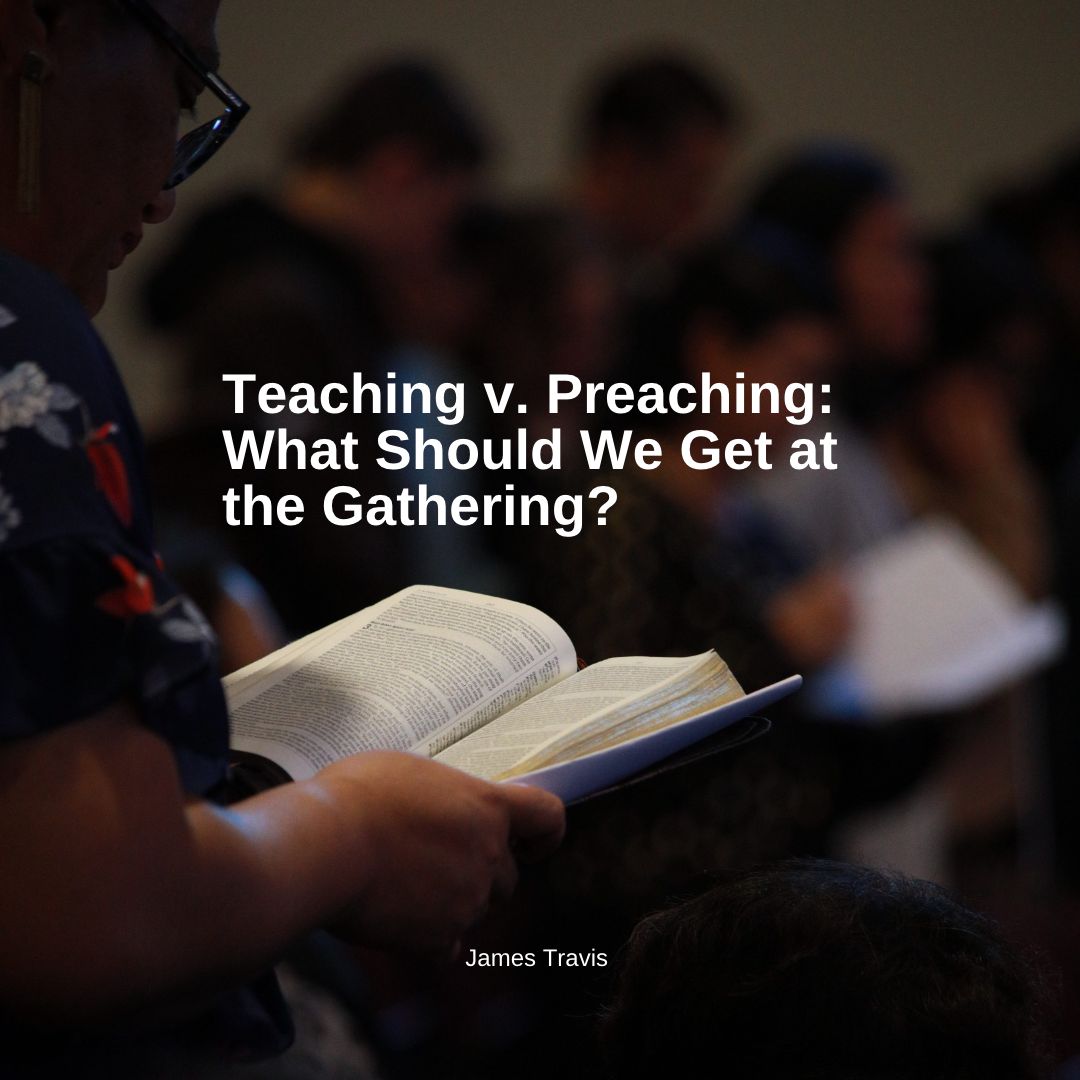
Many people have personal preferences and their own opinions about the gathered church (which is fine; we’re all made, graced, and gifted uniquely, cf. 1 Peter 4.10). One area keenly discussed is the receiving of God’s Word when the church assembles for its regular and formal service (Hebrews 10.25):
Is it preached?
Is it taught?
Is there even a difference?
As we’re making decisions about how our gatherings should look and how we should expect to receive the Word, we really ought to consult Scripture itself (1 Corinthians 14.36).
So, let’s do just that now …
We’ll begin by looking at 1 Timothy and 2 Timothy: they were written to a church-leading man, in part, about “doing church” after all. Paul writes:
“I hope to come to you soon, but I am writing these instructions to you in case I am delayed, to let you knowhow people ought to conduct themselves in the household of God, because it is the church of the living God, the support and bulwark of the truth.”
(1 Timothy 3.14-15, NET, emphasis added)
As part of these instructions for “how to do church,” five times in two letters Timothy is instructed to teach (1 Timothy 2.12, 4.11, 16, 6.2; 2 Timothy 2.2, διδάσκω – to teach or speak in a public assembly, to direct, to admonish, to instruct).
Only once is Timothy instructed to preach (2 Timothy 4.2, κηρύσσω – to publish, proclaim, to announce openly and publicly).
There is, in Paul’s letters to Timothy at least, a preference for teaching and instruction over simply announcing the Good News when the church is gathered. Is this reflected in the wider New Testament?
In a word, yes: preaching is spoken of 61 times to teaching‘s 160 (NET).
So, What Does This Mean for Our Weekly Worship Services?
It means that teaching certainly does have a place: a scriptural place of importance that (by frequency at least) outweighs preaching. To enter church and expect to simply hear the Gospel message, isolated from any biblical instruction, is to want dessert without a main course.
It means that when we gather we should want to know and to grow in our faith, and we do this, first and foremost, by being instructed in God’s Word (1 Corinthians 14.18-19).
It means that our expectations as we gather should line up with Scripture and that we receive the rhema¹ (Acts 5.20-21) as those who want to learn.
It means that teaching should not simply be tolerated, but treasured (Proverbs 2.1-5).
To be preached at without being taught will certainly have value for some. Most, however, need the why that teaching provides in addition to the what of the Good News:
Why does God love me?
Why did Jesus need to die for me?
Why is it important for me to live a certain lifestyle now I have claimed Christ as Saviour and why does this text lead me to it?
Why is the Gospel good news for me?
The Two – Teaching and Preaching – Are Not in Competition; They Are Complementary: Each Is Essential to the Other.
I once read something on how preaching and teaching should go together each week as the church gathers:
“…our world needs to know just how far we have fallen from our original purpose
(the teaching of the text),
but that there is a Saviour who has ascended higher than we ever can, and He wants to take us with Him
(the preaching of the Gospel message).”
So, What Should We Get at the Gathering?
Your pastor’s primary job when the church gathers—according to Scripture—is to teach before he preaches (it’s literally part of his job title, see Ephesians 4.11 and the grammatical coherence of pastors and teachers).
When you gather at church, there are those among you who don’t know why (or even how) we’ve fallen and, as such, whythe Gospel is the good news. Scripture, properly handled and taught, reveals so. To present the Gospel message aside from the teaching of Scripture is to answer a question that nobody asked.
So, if you already know why the Gospel is good news, great! But remember, there will be those in your church family who are newer to the faith than you are and maybe there are those whose biblical literacy is catching up to yours, so be patient with those who might not yet know why. Pray for them as they receive God’s Word as instruction and insight that they haven’t had before.
Simply, be patient in the teaching as you await the preaching.
If there are passages, or whole books of the Bible, that you lack understanding in, soak in the teaching of the text and welcome the opportunity to know and grow in your faith.
Simply, take in the teaching and the preaching with equal enthusiasm.
Whatever posture you find yourself in as you receive the Word each week at church, let us all see above everything else, and with a progressing clarity and brilliance, its Divine Author and the Saviour that it points us to (John 5.39-40).
References
¹ Rhema: that which is spoken; declaration, saying, speech, word.







